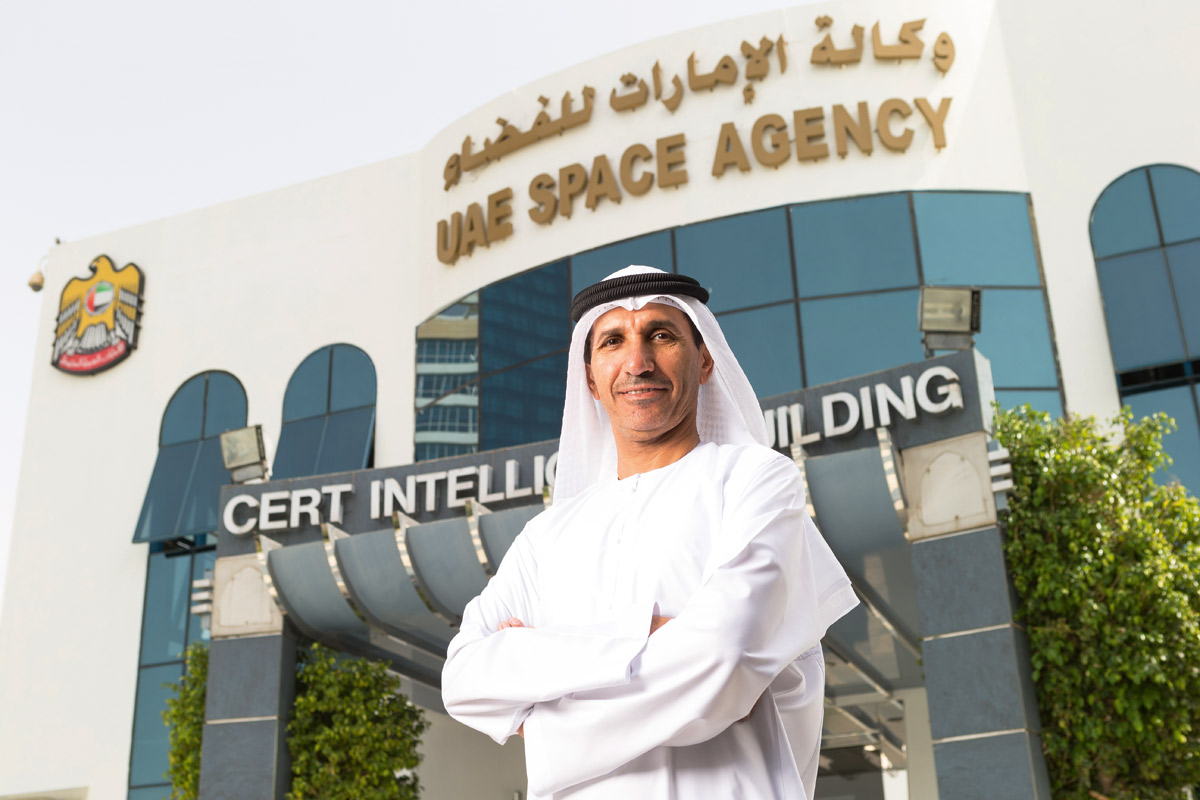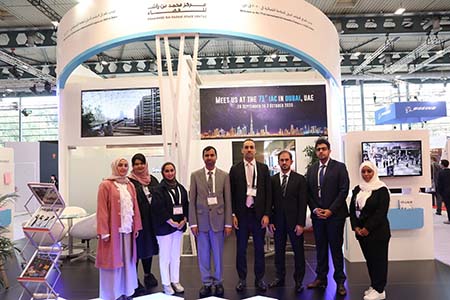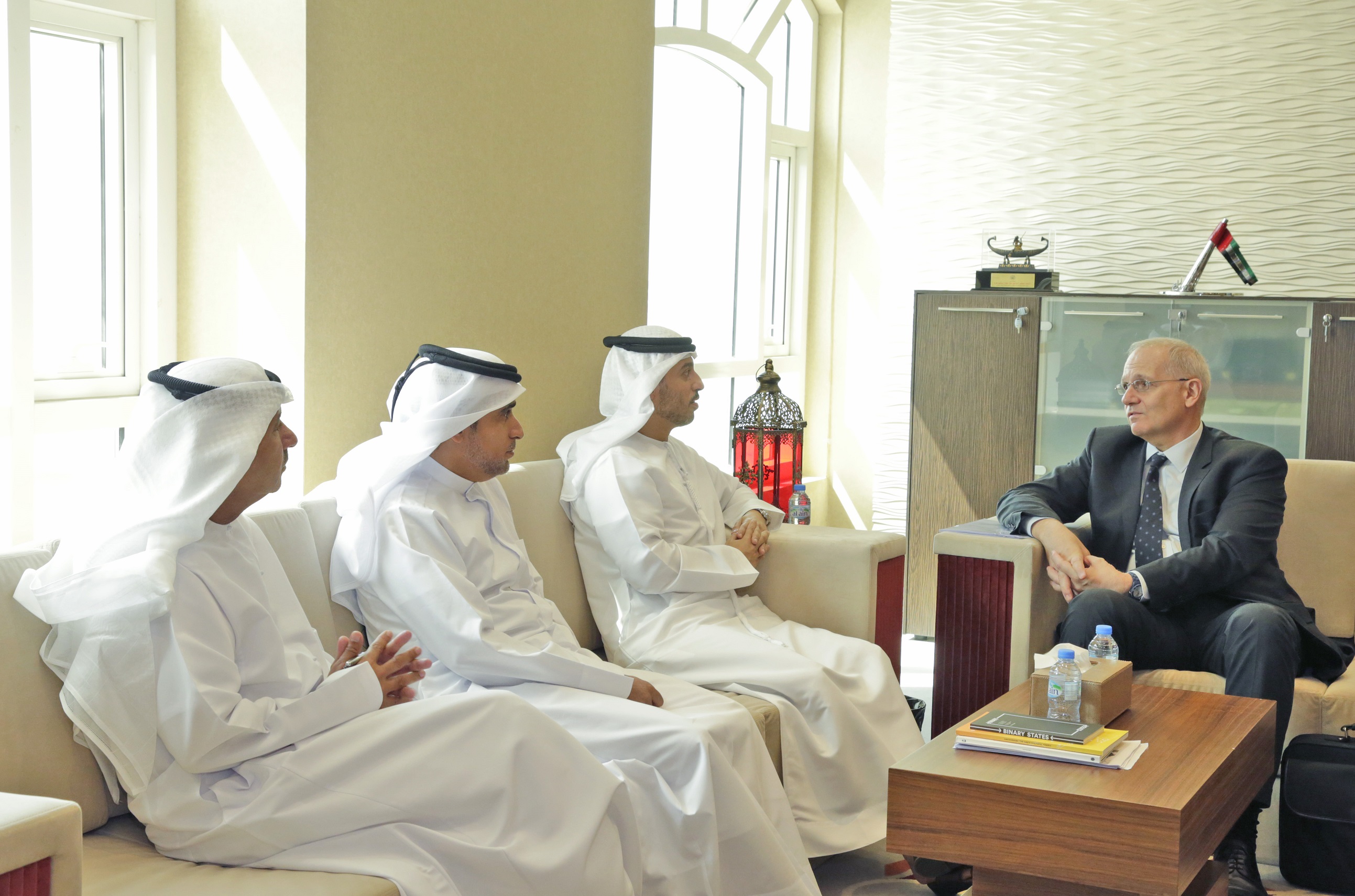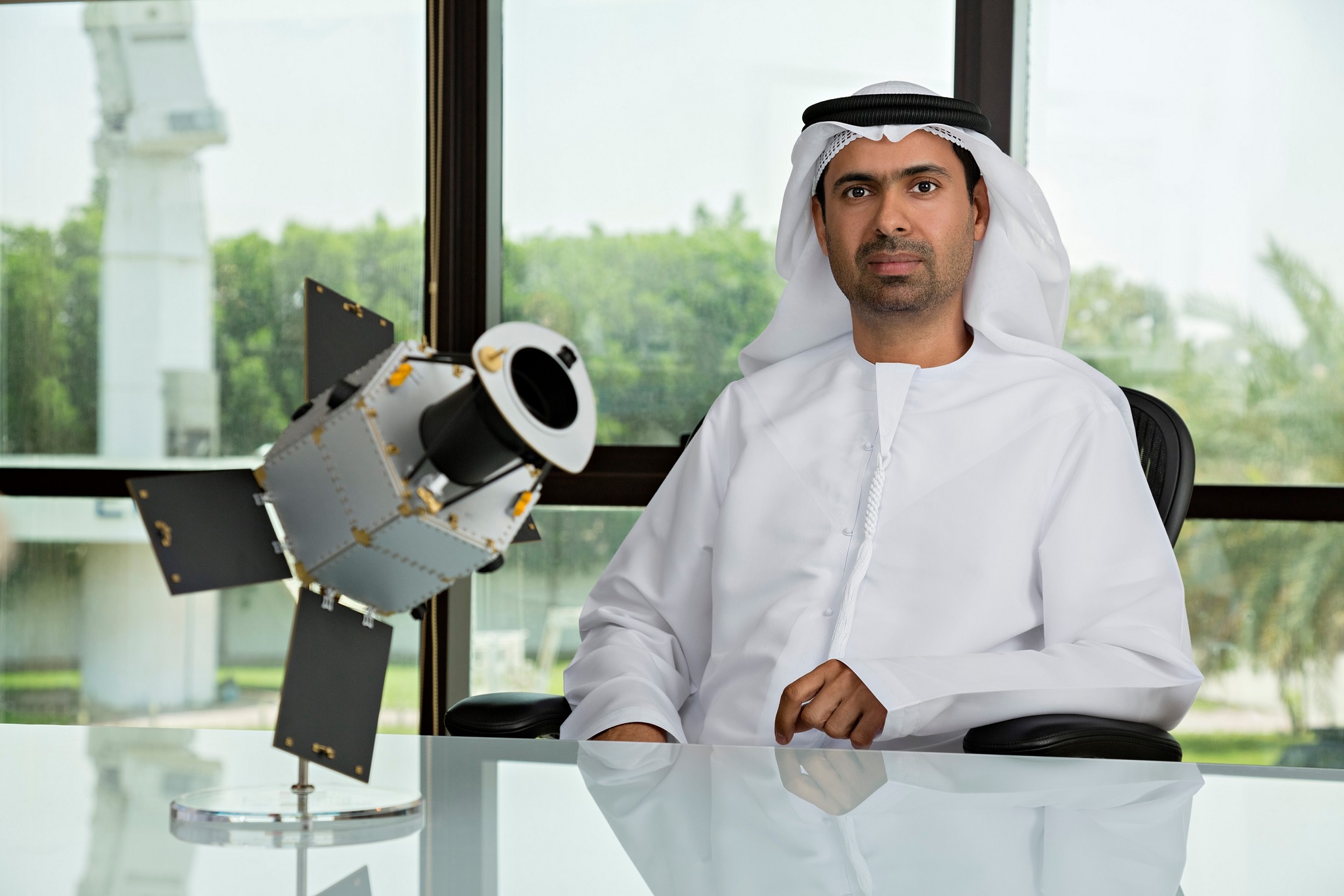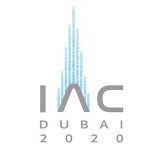The IAC is an annual event led by the International Astronautical Federation (IAF), of which the UAE Space Agency became a member in 2016
 Delegates from the UAE Space Agency and Mohammed Bin Rashid Space Centre presented eight unique academic papers to the 68th International Astronautical Congress (IAC), providing insight into the recent successful experiences of the UAE space sector and programme. The Space Agency delegation, which exhibited and participated in events throughout the 68th IAC held in Adelaide, Australia, was led by H.E. Dr. Ahmad Belhoul Al Falasi, Minister of State for Higher Education and Chairman of the UAE Space Agency.
Delegates from the UAE Space Agency and Mohammed Bin Rashid Space Centre presented eight unique academic papers to the 68th International Astronautical Congress (IAC), providing insight into the recent successful experiences of the UAE space sector and programme. The Space Agency delegation, which exhibited and participated in events throughout the 68th IAC held in Adelaide, Australia, was led by H.E. Dr. Ahmad Belhoul Al Falasi, Minister of State for Higher Education and Chairman of the UAE Space Agency.
H.E. Dr. Ahmad Belhoul Al Falasi said: ?The IAC is the world?s premier event for the space sector and industry, providing an excellent opportunity to showcase the latest trends and developments from the UAE?s rapidly developing national space program. The papers presented by our esteemed colleagues further demonstrate to the world that the United Arab Emirates is a major contributor to the global space sector.?
H.E. Al Falasi continued: ?Our presence at the 68th IAC bolstered our strategic imperative of working with the international community to strengthen the UAE?s role in space affairs. As one of the most significant global space events, it provided excellent opportunities for advancing our relationships with partners around the world, and we made excellent progress in this regard.?
Dr. Muthanna Al Mahmoud, Engineering and Design Manager at the UAE Space Agency and Professor Dr. Ingyn Zaw of New York University, Abu Dhabi, co-authored a paper titled ?The Benefits of a Deep Space Ground Station in the UAE?. The paper assessed the benefits and unique advantages of the UAE?s geographical location for building a site similar to NASA?s deep space network. The authors noted its potential to contribute to future deep space missions as well as international astronomy activities by joining existing long-range networks.
Another paper submitted by Abdulla Shehhi, Trainee Engineer at the UAE Space Agency, provided an aerodynamic analysis of airplanes gliding on Mars. Despite the wide scientific interest in Mars, no man-made object has yet glided in the Martian atmosphere. The research paper used computational fluid dynamics simulations and wind tunnel experimental analyses to propose and modify conceptual designs.
Dr. Fatima Al Aidarous, Space Science Senior Specialist at the UAE Space Agency, submitted a paper titled ?How holistic interactive experience can inspire the younger generation through voluntary engagement,? which discussed means of inspiring youth to engage with fields related to aerospace and space sciences. The paper assessed the effect of immersive or hands-on experiences, such as the Boeing capsule, the Genes in Space competition and the James Webb Space Telescope. Nurturing the next generation of space pioneers is a major focus for the UAE Space Agency as it works towards significant space missions, including the Mars Hope Probe project.
Similarly, Heyam, Al Blooshi, Design Engineer at the UAE Space Agency, presented her paper assessing the role of the Space Fundamentals Training Program developed by the UAE Space Agency, Lockheed Martin and Mubadala. As well as providing an overview of the program, the paper assesses its role in enhancing international cooperation and knowledge exchange, in addition to highlighting the technical and strategic importance of such courses.
His Excellency Dr. Eng. Mohammed Nasser Al Ahbabi, Director General of UAE Space Agency, said: ?The Agency?s participation in last week?s international space event was essential, due to the rapidly changing nature of space science and exploration. We intend to support the space sector in the UAE with the latest international developments, which will be reflected on existing and future projects in accordance with the Agency?s strategic plans. Additionally, because the Agency is responsible for numerous scientific and exploratory initiatives, we need to remain informed of all the latest developments in the field of space exploration. Attending the IAC provided us with the opportunity to develop an in-depth understanding of the most recent innovations and technologies within the sector.?
Finally, a number of members of the Emirates Mars Mission team from the Mohammed Bin Rashid Space Centre, presented their latest research, observations and academic papers at the Congress.
Eng. Mariam AlShamsi, Instrument Science Lead, EMM, MBRSC had a presentation titled Emirates Mars Mission 2020: Science Targets and Observations which focusses on science objectives and investigations that will improve the science community understanding of the global circulation in the Martian lower atmosphere and the connections to the upward transport of energy of the escaping atmospheric particles from the upper atmosphere. This will be accomplished using a suite of instruments covering the Infra-Red, visible and ultra-violet ranges. The presentation also highlighted the different observation strategies of the instruments.
Eng. Amel Amin, strategic planning senior engineer presented a paper called “Emirates Mars mission 2020: education and outreach challenges and outcomes” in the Space Education and Outreach Symposium. The paper focuses on how the strategic objectives of the mission are met through the education and outreach objectives team. It also highlights the different programs under the project, but focus on the activities and programs conducted for the general public.
Eng. Mohsen Al Awadhi, mission system engineer, EMM at MBRSC presented two papers. The fist paper is titled, EMM Mission Overview which describes the missions strategic overview and its scientific objectives, in addition to the spacecraft and the instruments probe. Al Awadhi?s second paper was titled, EMM Spacecraft Design Overview Description which talks in details about the design of the Spacecraft and probe?s subsystem.
Eng. Khalid AlZarooni, EMIRS Electronics Engineer at EMM, MBRSC presented a paper, titled Emirates Mars Mission instruments design, operations and data, in which it illustrates the three different instruments on board the probe, clarifying each instrument in two approaches scientifically and technically.
The IAC is an annual event led by the International Astronautical Federation (IAF), of which the UAE Space Agency became a member in 2016.
